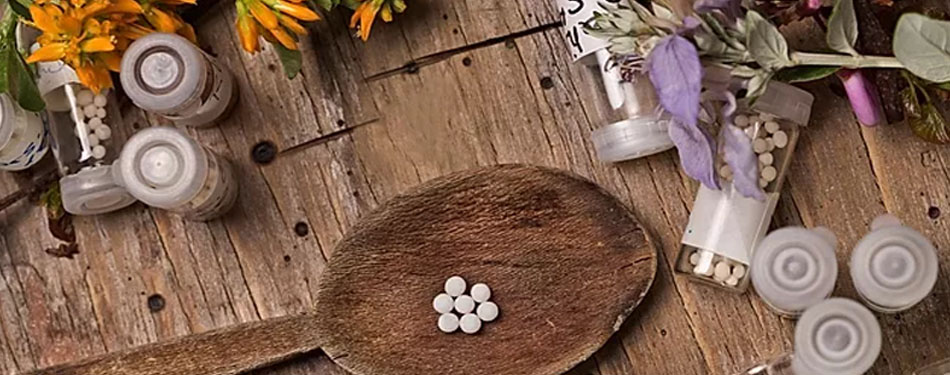
According to the Food and Drug Administration, "medication errors cause at least one death every day and injure approximately 1.3 million people annually in the United States." In total, about 250,000 deaths per year are iatrogenic – meaning they are caused in some manner by conventional medical care. (Fortunately, alternatives do exist that could save lives!)
Discover the power of homeopathic medicine to help heal the body.
Homeopathy was founded in 1796 by German physician Samuel Hahnemann. Homeopathy's basic premise, "the principle of similars," maintains that a substance known to cause the symptoms of disease will induce a cure of those symptoms if administered in a small amount.
Rather than masking or suppressing symptoms, homeopathy addresses an overall syndrome of body and mind, strengthening the body's own defense system so that it can heal itself. Before advising a remedy, homeopaths consider not only the patient's symptoms but their personal traits, physical states, psychological condition and history as well.
Made from plants, minerals, and other natural substances, homeopathic medicines are created by adding infinitesimal amounts of a specific substance to distilled water and then shaking it, a process known as "succussion." Homeopaths believe that these repeated shakings and dilutions cause a shadow or imprint on the water known as a fractal - from which arises the medicines' power. In fact, the more times a medicine is diluted, the more powerful it's considered to be. Due to the extreme dilution of the original substance, however, homeopathic remedies can be taken safely - and with no negative side effects.
Homeopathic medicine is more widely practiced and accepted in Europe than in the United States. Half of all Dutch doctors consider homeopathic medicines to be effective, while approximately 30 percent of French doctors and 20 percent of German doctors use homeopathic medicines regularly. And, the British Royal Family has used and supported homeopathy for a very long time.
Homeopathy was founded in 1796 by German physician Samuel Hahnemann. Homeopathy's basic premise, "the principle of similars," maintains that a substance known to cause the symptoms of disease will induce a cure of those symptoms if administered in a small amount.
Rather than masking or suppressing symptoms, homeopathy addresses an overall syndrome of body and mind, strengthening the body's own defense system so that it can heal itself. Before advising a remedy, homeopaths consider not only the patient's symptoms but their personal traits, physical states, psychological condition and history as well.
Made from plants, minerals, and other natural substances, homeopathic medicines are created by adding infinitesimal amounts of a specific substance to distilled water and then shaking it, a process known as "succussion." Homeopaths believe that these repeated shakings and dilutions cause a shadow or imprint on the water known as a fractal - from which arises the medicines' power. In fact, the more times a medicine is diluted, the more powerful it's considered to be. Due to the extreme dilution of the original substance, however, homeopathic remedies can be taken safely - and with no negative side effects.
Homeopathic medicine is more widely practiced and accepted in Europe than in the United States. Half of all Dutch doctors consider homeopathic medicines to be effective, while approximately 30 percent of French doctors and 20 percent of German doctors use homeopathic medicines regularly. And, the British Royal Family has used and supported homeopathy for a very long time.
Homeopathy has long been considered a threat to conventional medicine
Homeopathy was very popular among prominent and well-educated members of society in urban areas in the nineteenth century. Writers and poets such as Henry Wadsworth Longfellow, Nathaniel Hawthorne, Harriet Beecher Stowe, Louisa May Alcott, Daniel Webster, and Henry James were devotees, and the New York Medical College for Women was originally founded as a homeopathic school.
But the opposition of conventional medicine to homeopathy was significant. Not only were homeopaths speaking out against the accepted pharmaceutical drugs of the day, they were competing with conventional physicians.
Today, mainstream medicine continues to downplay and negate the success of homeopathic medicine – even in the face of compelling evidence.